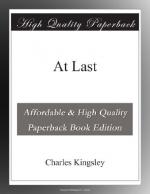Mabel’s smile was meant to be careless, but it was only uneasy, and gave the lie direct to her asseveration.
“I have no apprehensions of such a conflict. Winston’s word is as good as another man’s oath. It is pledged to my marriage with Frederic Chilton, in the event of the prosperous issue of his inquiries into his, Frederic’s, character and prospects. That these will be answered favorably, I have the word of another, who is every whit as trustworthy. Where is there room for doubt?”
The brunette shook her head—unconvinced.
“Have your own way! I can afford to abide the showing of the logic of events.”
“And I!” retorted Mabel, hastily, turning from her, without attempting to dissemble her chagrin, to answer a knock at the door.
It was a servant, with two letters. The annoyance passed from her brow, like the sheerest mist, as she read the superscriptions—one in her brother’s handwriting, the other in Frederic’s.
Rosa interfered to prevent the breaking of the seals.
“I am going to leave you to the undisturbed enjoyment of your feast,” she said, in her most winsome manner. “But—won’t it taste the sweeter if your antepast is the delight of forgiveness? Say you are not angry with me—mia cara!”
“You are a ridiculous child!” Mabel bent to kiss the pleading lips, then the great, melting eyes. “Who could be out of temper with you for half a minute at a time? You did try my patience with your nonsense, but since it was nonsense, I have forgotten it all, and love you none the less for your prankish humor—you gypsy!”
“She calls my prophecies humbug—turns a deaf ear to my warnings!” cried the incorrigible rattle, clasping her hands above her head and rolling her eyes tragically. “I have a lively appreciation, at this instant, of Cassandra’s agonies when Troilus named her ’our mad sister!’—
’Woe! woe!
woe!
Let us pay betimes
A moiety of that mass of moans
to come!’”
Laughing anew at her frantic rush from the chamber, Mabel sat down in the broad window-seat to read her love-letter.
Frederic was too manly in feeling and habit of speech to deal in florid rhapsodies, but each line had its message from his heart to hers. He loved her purely and in truth, and there was not a sentence that did not tell her this, by inference, if not directly. He trusted her—and this, too, he told her, more as a husband might the wife of years than a lover of her he had won so lately. Their hopes were the same and their lives, and she dwelt longest upon the sketched plans for the future of these. It brought him closer to her than anything else—put her secret and reluctant imaginations of evil, and Rosa’s daring insinuations, out of sight and recollection. She read slowly, and with frequent pauses, that she might take in the exquisite flavor of this and that phrase of endearment; set before herself in beauty and distinctness the scenes he portrayed as the adornment of the prospect which was theirs.




